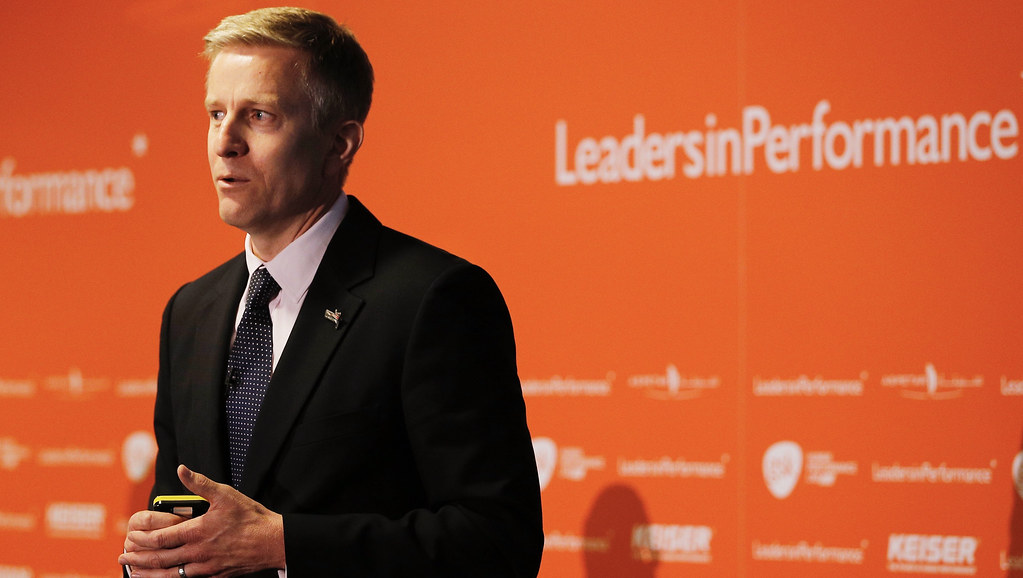Pro-Chancellor, Simon Timson is a lesser-known name behind many recent British sporting successes, as he has worked in various key roles in different organisations. His career in high-performance sport began while studying at the University of Exeter, when he was selected for the British Bobsleigh Team in 1990. After some modest success, Simon realised that he would not reach the top as an athlete. During his first proper job as a teacher, he helped to establish the country’s first full-time first-class cricket academy at Somerset in the mid-1990s.
While Simon has studied at the University of Exeter and later completed his PhD at the University of Leeds either side of the millennium, his impact on our University is much more prominent. He came to the University in 2000 to teach, lead the bobsleigh programme and coach Alex Coomber, a little-known skeleton athlete. Later that year, the sport of skeleton obtained Olympic status and Alex Coomber went on to become the first British skeleton medallist by winning the bronze at the 2002 Games. On the back of this success and being instrumental in getting Britain’s only dry-land push-track at the far corner of our campus, Simon continued as the sport’s first Performance Director. The following Olympiad culminated with Shelley Rudman winning silver at the 2006 Games. During these four years, Simon established the foundation, which other people have now taken to even greater success with three consecutive Olympic gold medals in women’s skeleton. Simon also laid the groundwork, which eventually led to close research links between British Skeleton and researchers at the University, which are still ongoing.
Simon moved to the role of Head of Science and Medicine and later on as Head of the England Development Programme at the England and Wales Cricket Board in 2006. During his six years with cricket, England men became world number 1 in the rankings of all three recognised formats of the game and won the World T20 Cup. The women also won the 50-over World Cup in 2009. While working in Bath with bobsleigh in 2000, Simon aspired to become Head of Performance of a major sport. Little did he realise then that he was to become the Head of Performance of British sport by taking the Director of Performance role for UK Sport in 2012. His friends and colleagues were puzzled why anyone would take up this role after such a successful home Olympic Games in London. Surely, the only way was down, as has happened to all host nations in the modern era. Simon knew better; he drew plans to re-calibrate jobs of key personnel and build belief in the system, even when many athletes retired and support staff had left their posts. The key was to concentrate efforts on sports which could win multiple medals at the Rio Olympics. Summer 2016 came and Britain won a total of 67 medals at the Games, two more than in London, and became the first nation to win more medals at a Summer Olympics immediately after hosting the Games – a truly remarkable achievement.
After the Rio Games, Simon became the Performance Director of Lawn Tennis Association. Based on his track record, other nations should start to be wary of what he can achieve with British tennis. Simon has lived in Bath since 2003 and despite his jobs elsewhere, he continues to live here with his wife, Jo and twin children, Josh and Amelie.
Pro-Chancellor, I present to you Dr Simon Timson, who is eminently worthy to receive the degree of Doctor of the University, honoris causa.
